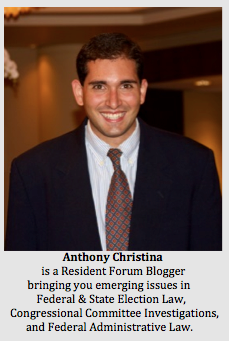The term Fast & Furious has become synonymous in cultural vernacular less so much for the street racing action franchise spawning seven films, but rather for the official name of a botched 2006-2010 Federal Bureau of Alcohol and Tobacco and Firearms illegal gun trafficking sting operation. During Fast & Furious 2,000 firearms hit the streets and were placed in the possession of drug cartels. This tragically resulted in a situation where guns inadvertently ended up in the hands of drug traffickers who murdered U.S. Border Patrol Agent Brian Terry.
As news of the debacle came to light it resulted in an eighteen month investigatory probe by the House Oversight and Government Reform Committee into the Justice Department’s handling of the case. Attorney General Holder was subpoenaed on multiple occasions to provide the Committee with documents related to the matter.
On June 28th 2012 the entire House of Representatives voted to hold Attorney General Eric Holder in Contempt of Congress after his repeated refusal to turn over their requests for documents.
During the 20th century Congress has used its investigatory subpoena power to compel testimony and documents very aggressively. The House Un-American Activities Committee and the Senate Watergate Committee are prime examples.
Congress’s legal authority rests in 2 U.S.C. § 192 – Refusal of witness to testify or produce papers and 2 U.S.C. § 194 – Certification of failure to testify or produce; grand jury action. § 192 states:
Every person who having been summoned as a witness. . . to produce papers upon any matter under inquiry before either House. . .[and] refuses to answer any question pertinent to the question under inquiry, shall be deemed guilty of a misdemeanor . . . .
However, the legal conundrum rests in the jurisdiction of what office would prosecute the charge. 2 U.S.C. § 194 goes on to explain that when an individual fails to produce documents under a violation of § 192, the Speaker of the House of Representatives has the authority to assign the case. The statute specifically says that: “[the] case may be [brought], to the appropriate United States attorney, whose duty it shall be to bring the matter before the grand jury for its action.”
In this case it would be the U.S. Attorney for the District of Columbia who was not only appointed by President Obama, but whose supervision also simultaneously falls under the authority of the Attorney General, by virtue of his office. So far a D.C. based federal grand jury has yet to formally indict Holder.
Attorney General Holder has made it clear he will stay on until his successor has been nominated and confirmed. However, last fall, the saga took an interesting turn of events prior to the midterm elections. Eric Holder’s attorneys filed various motions to stay the Committee’s request to produce documents. In an double sided order entered on October 6, 2014, U.S. District Court Judge Amy Berman Jackson held that “Under those circumstances, the Court finds no basis to hold defendant in contempt,” however while also denying Holder’s request for an indefinite stay of her prior order that he must turn over to the court any and all “non-privileged” documents, likely setting up an appeal by both parties to the D.C. Circuit.
While those on the left can chalk this up to political gamesmanship by a Republican Congress, those on the right will assert this as a fair exercise of Congress’s investigatory power. Regardless, the Fast & Furious investigation has presented a serious separation of powers conundrum to be resolved by the courts. Time will tell how the new Congress, stocked with a new Oversight Committee Chairman proceeds to handle the situation, as well as how nominee Loretta Lynch, once confirmed, will react if the matter doesn’t first become either politically or legally moot.
Published March 27, 2015
